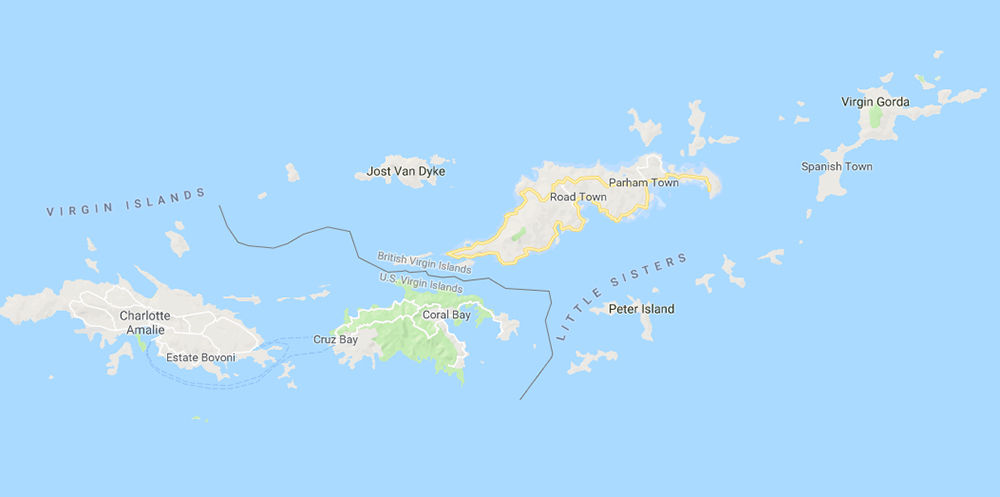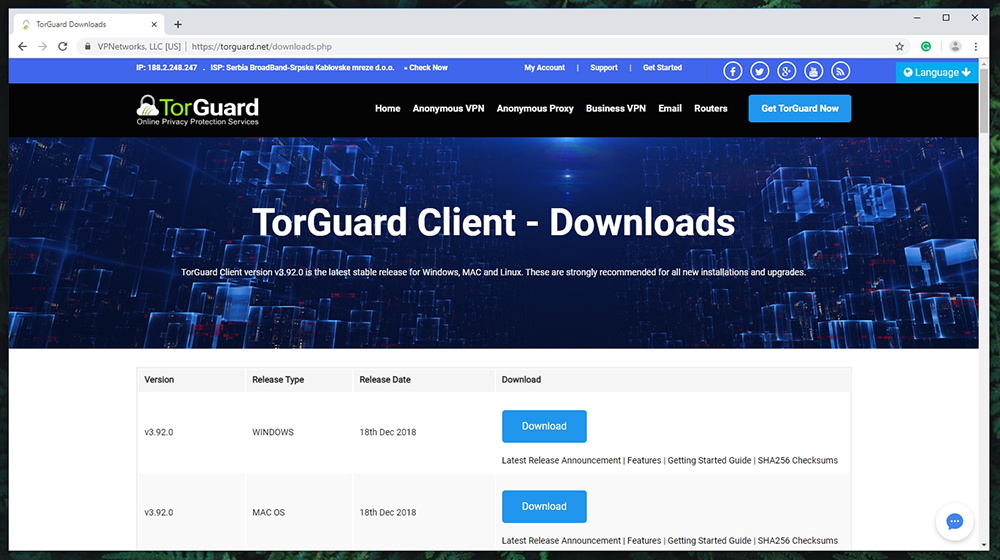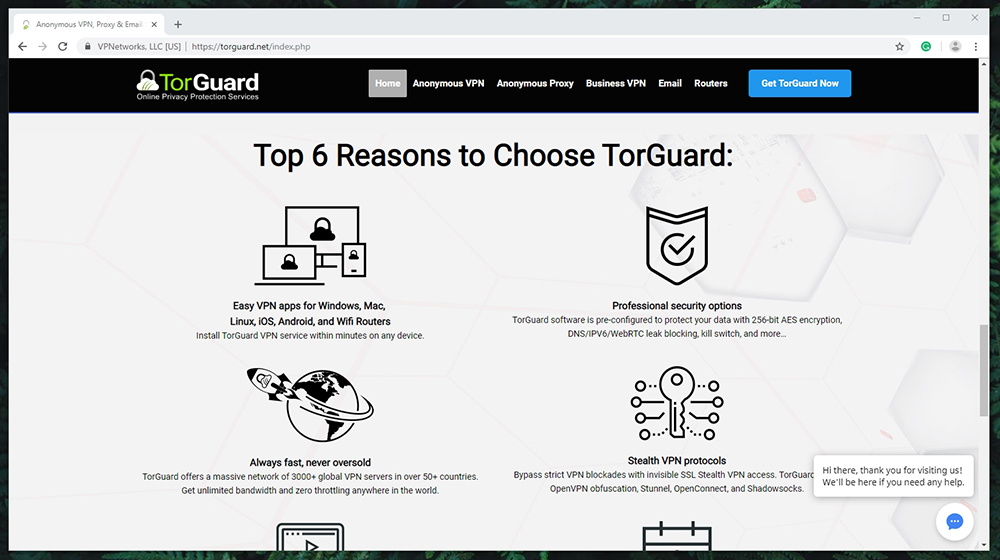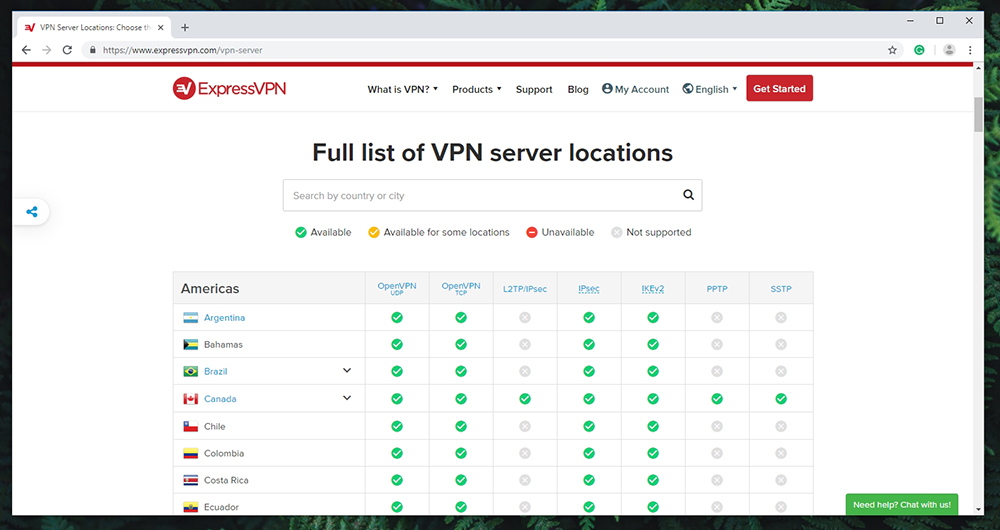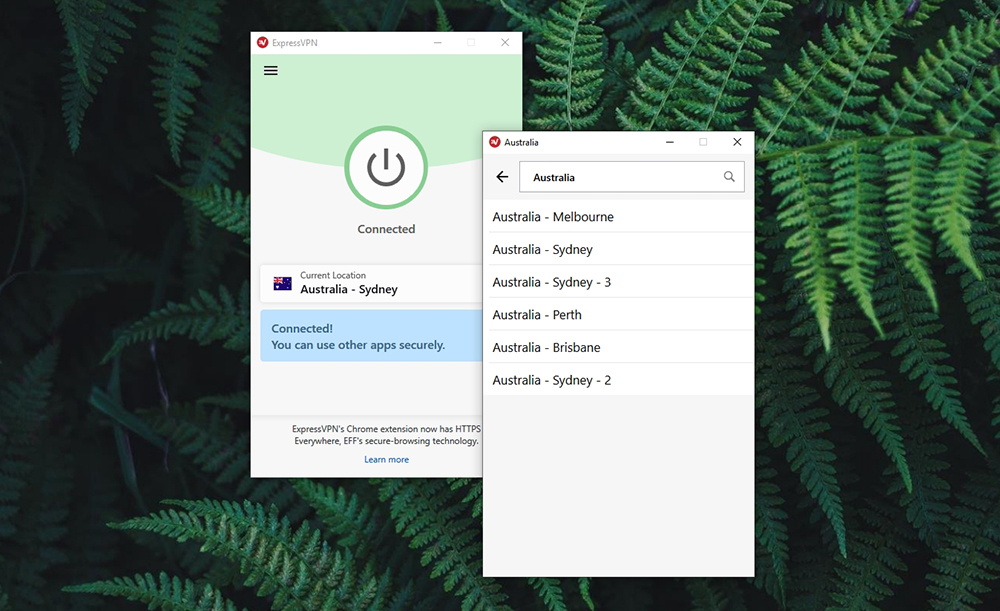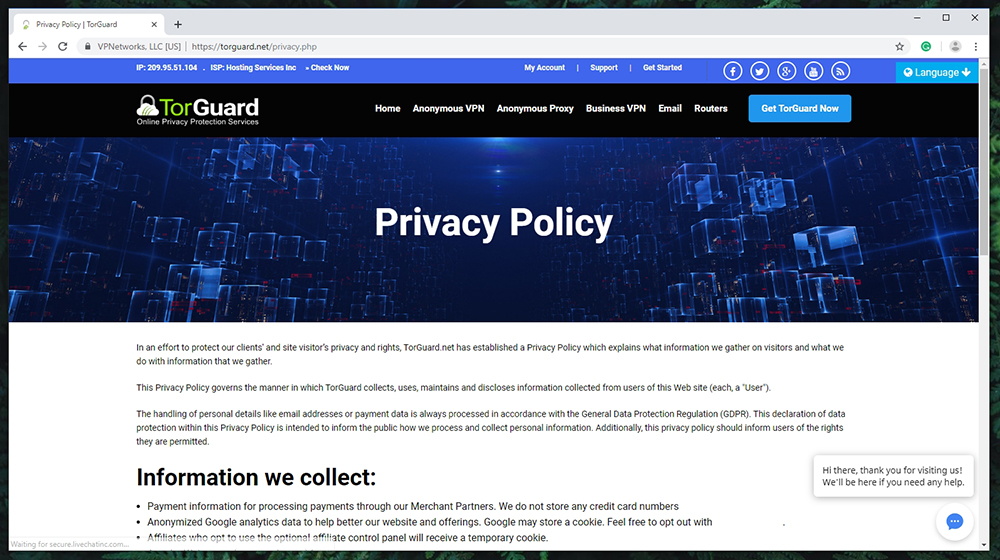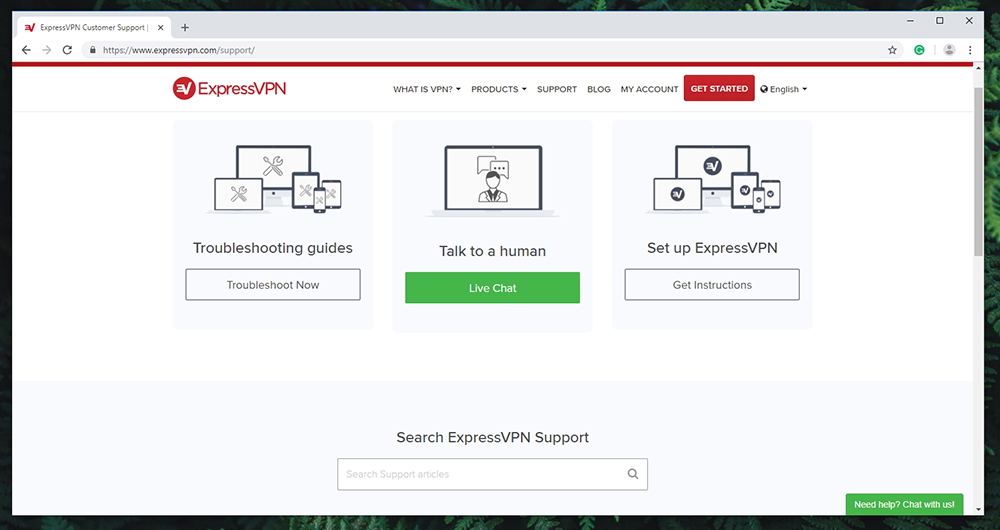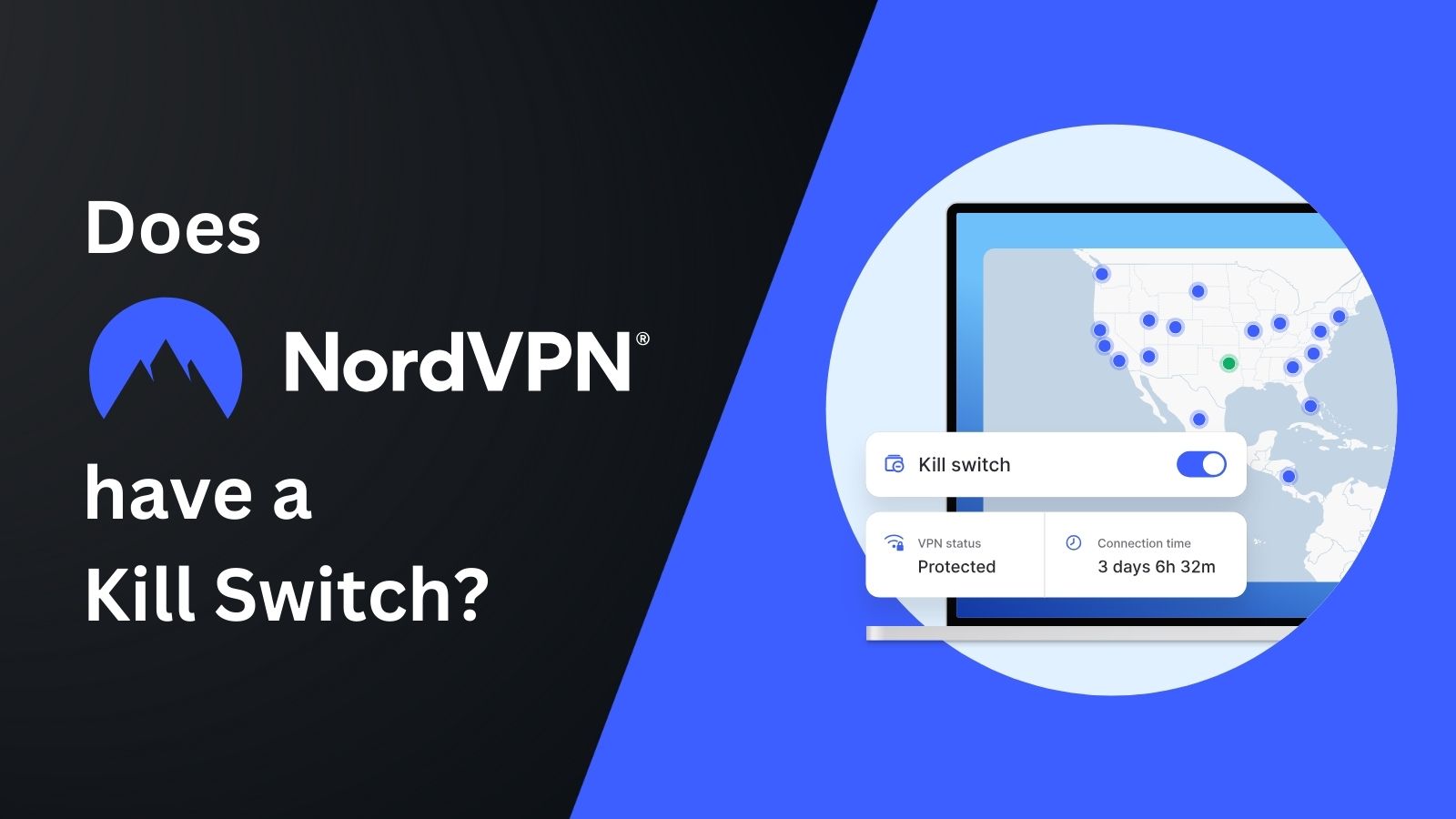When you purchase through links on our site, we may earn an affiliate commission. Here’s how it works.
ExpressVPN vs TorGuard Comparison (2019) – User-Friendliness vs Advanced Functionality!
Our experts have reviewed 53 VPN providers, which were put through extensive rounds of testing. To learn more about that process, here’s how we review VPNs, where we explain our criteria and our policy of being fully transparent.
First, a few words about each of these VPNs. As our ExpressVPN review explains, this VPN is an amazingly helpful all-around solution. It’s easy to use, comes equipped with all the features you’ll need, unblocks websites, and plenty more. However, all those things can be found in its competitor as well. If you read our TorGuard review, you’ll see that we were very impressed by this option. Therefore, we’ll need to focus on their subtleties as well, to find the true winner here.
First, we will go through these VPNs’ prominent features. This will help us compare them directly, by listing their capabilities. Take a look at the following table.
Using the following table, we will compare the scores of individual aspects of these VPNs. The goal is to identify the weak and strong sides of ExpressVPN and TorGuard.
And finally, we’re ready to dive deep into our ExpressVPN vs TorGuard comparison. Make sure to join us as we explore various aspects of these VPN services.
ExpressVPN vs TorGuard – Which One’s Better?
Just like we do in our every VPN comparison article, we’ll be going through a series of individual aspects of these VPNs. We’ll start with their background info, and then we’ll cover some of the things like their ease of use, privacy-related features, and plenty more.
Background, Jurisdiction & Reputation
The first category of our comparison relates to these VPNs’ backgrounds. More precisely, we’ll tell you where ExpressVPN and TorGuard come from and what that means.
- ExpressVPN: This VPN comes from the British Virgin Islands. Yes, we’re sure that sounds exotic, but there’s a good reason for this. Being outside of the 14 Eyes Alliance and other major intelligence networks, this country has no mandatory data retention laws. In addition, ExpressVPN has been recently audited and it was proven that it doesn’t collect user data. Also, it employs its own technology called TrustedServer, which eliminates the use of hard drives from its data centers.
- TorGuard: This VPN also comes with no problematic reports from its past. However, there’s something else problematic here. TorGuard comes from the USA, which might be a problem for those who truly care about anonymity. Still, it’s good to know that there are no reports of this VPN collecting user data or supplying such data to third parties.
Winner: Both of these are hugely capable VPN solutions. However, in case you want to be 100% sure that your private data is safe, we recommend going with ExpressVPN.
Supported Platforms & Devices
Before getting started with a VPN, make sure to check if your platform of choice is covered. VPNs come with various types of native software designed for different devices. And as you can expect, some are doing this job better than others.
- ExpressVPN: We’re happy to say that ExpressVPN covers pretty much any popular device out there. You can use it on desktop and mobile systems, media streamers, Web browsers, and even routers. Even some rarely used devices are on this list. In addition, you can use it up to 5 devices at the same time.
- TorGuard: Everything said about its competitor also applies to TorGuard. You can count on a wide range of applications and platforms, with routers included as well. You get to use TorGuard on 5 devices simultaneously, just like ExpressVPN.
Winner: There’s no clear winner here. Both ExpressVPN and TorGuard come with a sizeable list of applications and they both can be used on up to 5 devices.
Installation & Initial Configuration
You’ll want a VPN that’s easy to use. Lucky for you, many of today’s VPNs are user-centric and come with easy installation methods. And that’s precisely what you can expect out of these VPNs as well.
- ExpressVPN: Once you’ve gone through the sign-up procedure, you can download ExpressVPN’s applications. This VPN has a user-friendly dashboard, where you’ll find your account info and other types of information. To simplify this process, there’s an activation code that you can use to easily log-in to ExpressVPN once you’ve installed it. It doesn’t get easier than this.
- TorGuard: This VPN has a central web page where you’ll find various versions of TorGuard. Therefore, you can download the correct version of the VPN from that page. The process of installation is very simple, without any unexpected issues or bloatware. All in all, it takes only a few minutes to go through this procedure.
Winner: Yet again, there’s no clear winner of this category. Both ExpressVPN and TorGuard come with simple installation methods, suitable for complete beginners as well.
Prominent Features
What kinds of features you can expect out of these VPNs? Will they meet your needs in terms of data protection? Let’s find out!
- ExpressVPN: We are 100% sure that ExpressVPN will meet your every need. It comes equipped with the standard set of features complemented by advanced options as well. We’re talking about a kill-switch, split-tunneling, and more. Also, it’s worth noting that ExpressVPN often introduces new features, which is a good signal if you want to get its long-term subscription.
- TorGuard: This VPN also comes with both standard and advanced features. However, in comparison to ExpressVPN, it doesn’t provide split-tunneling (there’s a complicated workaround, though). Still, you’ll get ad-blocking, which is something that ExpressVPN doesn’t provide at the moment.
Winner: If you need the very best of what today’s VPNs offer, you won’t make a mistake no matter which VPN you choose. ExpressVPN and TorGuard are among the most capable VPNs right now.
Server Count
You must be wondering how big are the server networks of these VPNs? We have the answer to that question, so let’s compare them.
- ExpressVPN: At the moment, you can count on over 3,000 servers in 94 countries. In total, there are more than 160 locations. What’s important to say is that ExpressVPN’s servers are evenly spread across the globe, so the chances are that you’ll find a nearby one. In turn, this should provide you with reliable and stable performance.
- TorGuard: Interestingly enough, TorGuard also has around 3,000 servers. However, these are spread across 50+ countries and bring close to 70 locations in total. As you can see, these two VPNs have approximately the same number of servers. However, ExpressVPN brings much greater coverage.
Winner: We don’t have to think hard about choosing the winner of this category. By being present in numerous countries around the world, ExpressVPN wins this round.
Ease of Use
You no longer have to be an IT expert to use VPN applications. They’ve become very user-friendly and many of them come with a polished UI. So, let’s continue our ExpressVPN vs TorGuard comparison by checking their ease of use.
- ExpressVPN: For a long time now, this VPN has been known for its ease of use. During the last year, ExpressVPN brought an update to its UI across all of its supported platforms. Today, this is a very simple yet powerful application suitable for both beginners and high-end users. It can be fully automated, or you can go into its settings and fine-tune your Web browsing experience.
- TorGuard: Ever since it arrived on the market, TorGuard was known as a technical solution. Things didn’t really change all that much, and this still is a complex application. There are plenty of checkboxes, technical terms, and dropdown menus that let you fine-tune even the smallest of things. Of course, this works great for advanced users. However, beginners should feel more comfortable using something simpler.
Winner: Once again, we must say that ExpressVPN seems like a better pick. It comes with a highly polished and intuitive UI that’s a real pleasure to use.
Media Streaming & Torrenting Support
Do you want to unblock Netflix outside of the US? Or maybe you want to access Hulu, BBC iPlayer, or Amazon Prime Video? To do that, you’ll need a capable VPN solution – and you have two equally powerful options in front of you.
- ExpressVPN: This VPN unblocks just about any website out there – without you having to jump through any hoops. Open the application, choose a server, and that’s about it. If you choose a server in the USA, you’ll get to watch Netflix, Hulu, and use any other popular media streaming platform. Also, let’s not forget that all of these servers are optimized for P2P traffic.
- TorGuard: You should know that TorGuard began its life as a solution for anonymizing P2P traffic. Needless to say, this situation didn’t change as this VPN plays nice with P2P even today. But also, you get to unblock plenty of different media streaming websites. However, there’s an important catch here. To unblock such websites, you need to get a ‘streaming IP’ which is sold as an add-on for existing subscriptions.
Winner: Considering that ExpressVPN unblocks media streaming websites out of the box, it would be our first choice in this case. TorGuard is also a powerful solution, but you’ll need to spend more to be able to unblock websites.
Security & Privacy
It’s nice to have different bells and whistles, but let’s not forget about the basics. The primary role of any VPN is to encrypt your Web data and protect your privacy. Therefore, you need to pay attention to their encryption, supported VPN protocols, what their privacy policies say, and more.
- ExpressVPN: To encrypt your data, ExpressVPN relies on AES-256. This is one of the strongest types of encryption, especially in the world of VPN services. Then, there are protocols such as OpenVPN (TCP/UDP) and L2TP/IPsec. In addition, ExpressVPN doesn’t collect your personal data and it respects your privacy. If you check our review of this VPN, you’ll see that we haven’t detected any data leaks, whatsoever.
- TorGuard: Here, we also have AES-256 and there’s another type of encryption called Blowfish. Then, there’s a wide array of VPN protocols that include OpenVPN, L2TP/IPsec, PPTP, SSTP, and more. There’s no evidence that TorGuard had ever collected any user data, and it comes free of any data leaks.
Winner: It’s impossible to say which of these VPNs bring a higher level of security. Both are equally capable, and they can safeguard your private data in the best way possible.
Speed & Performance
You’ve probably heard that VPNs can throttle your Web connection, which is true. However, top-rated VPNs have the means to minimize this downside, up to a point where this throttling is barely noticeable.
- ExpressVPN: During our tests, this VPN made our Web connection slower by 19% on average. We have to say that we felt very pleased with this result. If you have a fast Web connection, media streaming shouldn’t be a problem. Of course, if you have a very slow Web connection, you’d want to check the fastest VPNs right now.
- TorGuard: This VPN slowed us down by 22.7%. Once again, this isn’t a bad result even though it’s clear which of these performs better. We were pleasantly surprised by this VPN’s nearby server performance. Therefore, if you find a nearby server (based on your physical location), you might even get a better result. Still, TorGuard isn’t willing to share its list of locations before you get a subscription, so there’s a big obstacle right there.
Winner: We’ll choose a winner of this round based on our speed tests. As you already know, ExpressVPN brought a somewhat faster performance than its competitor. And since it covers the entire planet with its servers, the chances are that you’ll find a nearby server easier.
Customer Support
As you already know, VPNs are premium-priced services. Therefore, you should expect to have your problems resolved in a timely manner. This is why our ExpressVPN vs TorGuard comparison includes this aspect as well.
- ExpressVPN: If you decide to use this VPN, you can count on having customer support agents at your disposal – at all times. There’s a live chat on its website, where you’ll find friendly and knowledgeable individuals, always willing to help. You can also check various tutorials on how to install and use ExpressVPN, frequently asked questions, and plenty more. There’s even an often-updated blog that teaches you about VPN-related technologies.
- TorGuard: Everything said about its competitor applies to TorGuard as well. There’s live chat available, rich knowledge-base, frequently asked questions, video tutorials, and everything in between. No matter what kind of question or issue you have, we’re certain that you’ll get your answer quickly.
Winner: There’s no clear winner here, as both of these VPNs come with amazing customer support. They’re there for you when you need them, always waiting on your question.
Pricing
The final segment of our ExpressVPN vs TorGuard comparison is about their pricing. As you can see, we have nothing but praises for these two VPNs. So, let’s see how much you’ll need to pay and whether you can save some money in the long-term.
- ExpressVPN: If you decide to pay monthly, the price is $12.95. ExpressVPN isn’t the most affordable VPN out there, but we believe it’s still well worth the price. You’ll find the biggest savings in the annual plan, priced at $6.67 per month ($99.95). This plan brings three additional months of use, which seems like a generous offer. There’s a 30-day money-back guarantee, and you can pay via numerous payment channels, Bitcoin included.
- TorGuard: This VPN is priced at $9.99 per month – if you pay on a monthly basis. If you pay once a year, the price goes down to $4.99 per month ($59.99). However, it’s also worth noting that ‘streaming IPs’ are priced at $7.99 per month, and these allow you to unblock media streaming websites. You can count on a 7-day money-back guarantee, and there are numerous different ways to pay, with crypto-currencies included as well.
Winner: It’s true that TorGuard is somewhat more affordable than ExpressVPN – if we look at their ‘standard’ offers. However, TorGuard becomes much more expensive if you add a ‘streaming IP’, which is something that ExpressVPN includes in its standard offer. Therefore, we conclude that ExpressVPN brings more value for its price.
ExpressVPN vs TorGuard – Which One Should Be Your Pick?
In all honesty, you won’t make a mistake no matter which of these you pick. However, if you truly want the best for your money, there’s only one option available – and that would be ExpressVPN.
In comparison to TorGuard, ExpressVPN seems like a solution that’s better suited for average VPN users. It comes with a highly polished UI, has plenty of capable features, and it unblocks media streaming websites. Most importantly, this is a highly reputable VPN brand that certainly won’t let you down. So, feel free to go ahead and get your ExpressVPN subscription today!
Dear readers, this is where we conclude our ExpressVPN vs TorGuard comparison. If you liked this article, why not share it online? Also, you can follow us via our social media profiles, on Facebook and Twitter. Thanks!

